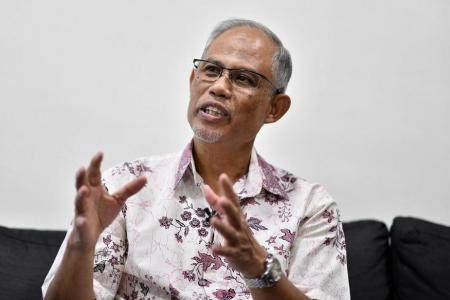Lower recidivism rate among Malay community: Masagos
Fewer Malays are reoffending after they leave prison, Minister-in-charge of Muslim Affairs Masagos Zulkifli revealed yesterday as he reflected on his first year in the position.
Mr Masagos - who is also Minister for the Environment and Water Resources - told Malay-language newspaper Berita Harian that the two-year recidivism rate for Malay-Muslim offenders fell from 34.7 per cent for those released in 2011 to 28.9 per cent for those released in 2016.
He added that the two-year relapse rate for Malays undergoing drug supervision improved from 41.6 per cent for the 2011 release cohort to 27.8 per cent for those in 2016.
The number of Malay-Muslim volunteers who befriend and guide offenders has also increased, noted Mr Masagos.
He took over the position of Minister-in-charge of Muslim Affairs from former minister for communications and information Yaacob Ibrahim last year.
The number of Malay-Muslim volunteers conducting the Muslim Religious Programme and Services to inmates as of end May was close to 130 - double the number in 2015.
Mr Masagos wrote: "These improvements are also significant at the international level. Because the recidivism rate among minorities is often high and sticky, many have accepted this as a given."
He said the achievements are a result of the community here "being steadfast and rallying together to make a difference".
Overall, Mr Masagos said that the Malay community in Singapore has made "good progress over the years", calling it a "community of success".
Last Friday, it was revealed that over 40 per cent of all offenders released in 2013 returned to prison within five years. Law and Home Affairs Minister K. Shanmugam called the figure a "cause for concern".
Inmates who are released often find themselves without the social support needed to reintegrate into society, said Mr Shanmugam. And they may also face family troubles as well as difficulty in finding jobs.
Get The New Paper on your phone with the free TNP app. Download from the Apple App Store or Google Play Store now



